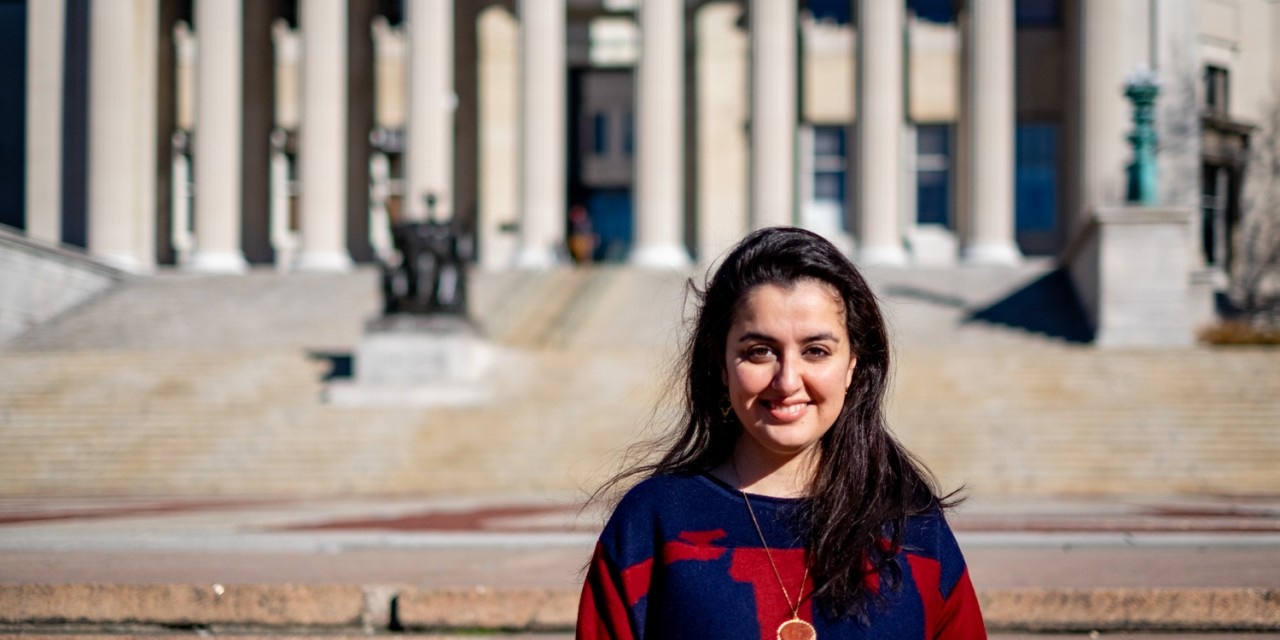Atefeh Akbari Shahmirzadi, PhD Candidate in English and Comparative Literature

Where did you grow up?
Tehran, Iran.
What drew you to your field?
The love of reading that was instilled in me from a very young age drew me to studying literature in college. But my investment in my particular field of study at the moment—comparative postcolonial studies—stems from a desire to make sense of the ways in which different nations have struggled to free themselves of foreign rule or intervention, and how accounts of these struggles have manifested in their cultural productions.
How would you explain your current research to someone outside of your field?
I am studying Iranian and Caribbean literature from the 1960s to the 1980s in comparison with one another, investigating how certain writers responded to the political upheavals in their respective countries by creating literature that wasn’t considered “political.” But I argue that their writings were contributing to important conversations about what it meant to be free, and that—in their own ways—they were transforming the limited and limiting category of “political literature.”
What is your favorite thing about being a student at Columbia GSAS?
The community. I’ve met people here who have become some of my most valued confidants, and the fact that they’re in different disciplines and hail from all over the world has helped me to gain a much richer perspective on life. This includes the extraordinary undergraduate community, as well; having the opportunity to teach them, and to cultivate meaningful mentoring relationships in the process, has made my time here infinitely more meaningful and valuable.
What resources or opportunities that Columbia provides have been most valuable to you?
I’ve really appreciated the variety of teaching opportunities available to graduate students. Being able to teach in the Core Curriculum, both as a University Writing instructor and a Literature Humanities Preceptor, has been an invaluable experience. We receive exceptional pedagogical support, and become an integral part of the undergraduate education at Columbia, which is both great training and very fulfilling in terms of the work that we do as graduate students.
The Graduate Student Internship Program in Primary Sources was another incredible opportunity. The hours that I spent in the Rare Book and Manuscript Library, processing the archival collections that I was working on, are among some of the best that I have spent on this campus. Also, I remember during our orientation for the internship, we were shown some 4,000-year-old tablets, and the awesome Rare Books Librarian Jane Siegel allowed us to examine them closely. It isn’t every day that you get to hold in your hand an ancient artifact replete with human history!
Who are your favorite writers?
That’s an impossible question to answer for someone who studies literature for a living! But some of my favorites are Sohrab Sepehri, Toni Morrison, Zoya Pirzad, Jorge Luis Borges, Claudia Rankine, and Hafez.
Who is your hero of fiction?
Jane Villanueva, played by the inimitable Gina Rodriguez, in Jane the Virgin.
Who are your heroes in real life?
My mother and father. They have dealt with a lot of adversity, but they have never stopped fighting for their children or for what’s right. They have been—and continue to be—extraordinary role models and parents.
If you were to die and come back as a person or a thing, what would it be?
A horse.
What music have you been listening to lately?
I’ve been focusing on my dissertation lately, so mostly it has been classical music. It calms me and helps me to concentrate. I’ve also recently discovered Michael Kinawuka, and have been listening obsessively to a few of his songs.
What is your favorite blog or website?
For better or worse, NYTimes.com. And BuzzFeed Quizzes—because it’s important to take a break from reality every once in a while and figure out what type of candy you are.
Where is your favorite place to eat on/around campus?
Subs Conscious has the best sandwiches!
